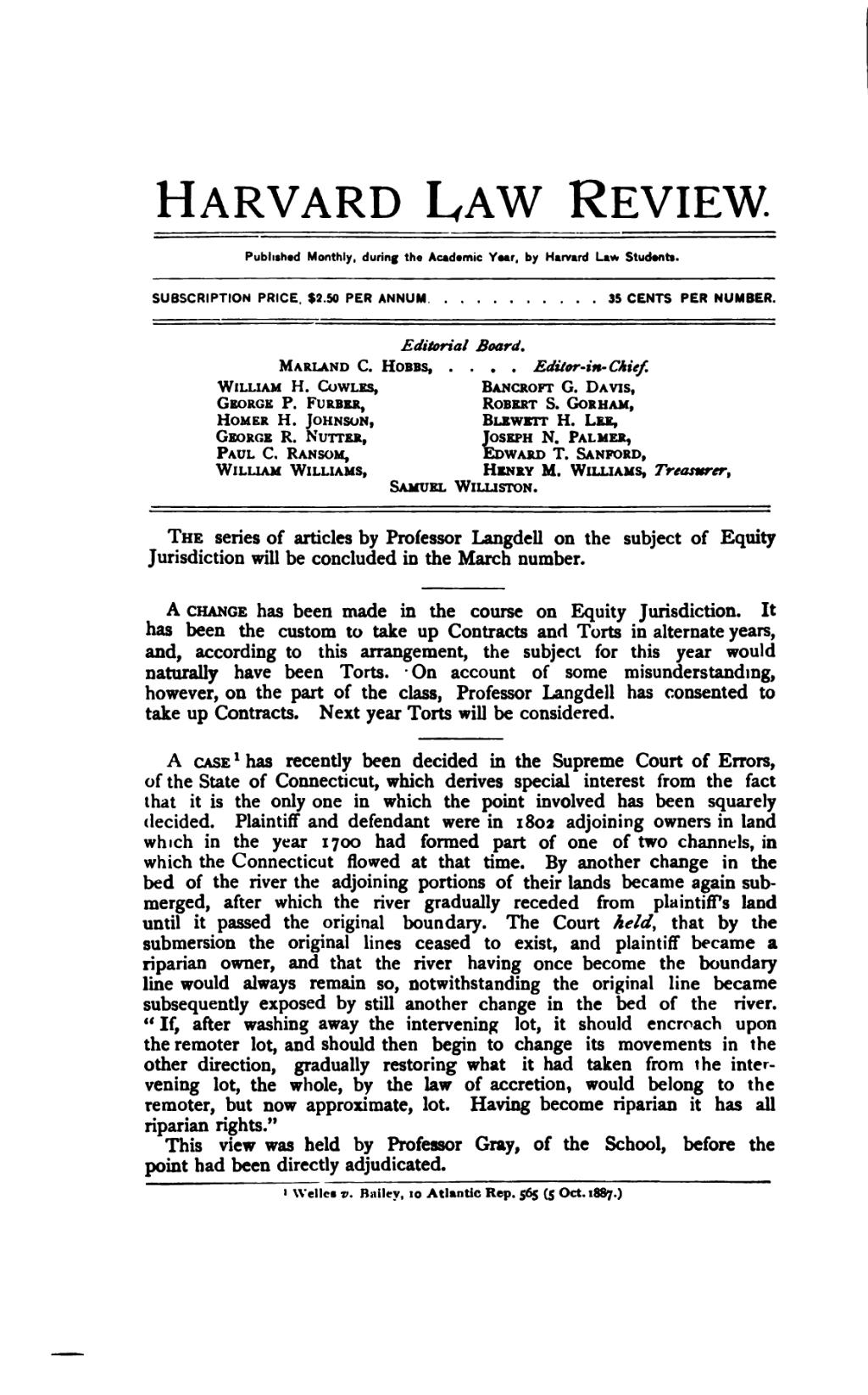Harvard Law Review.
Published Monthly, during the Academic Year, by Harvard Law Students.
SUBSCRIPTION PRICE, $2.50 PER ANNUM. |
35 CENTS PER NUMBER. |
Editorial Board. | |
|
Editor-in-Chief. |
William H. Cowles, |
Bancroft G. Davis, |
George P. Furber, |
Robert S. Gorham, |
Homer H. Johnson, |
Blewett H. Lee, |
George R. Nutter, |
Joseph N. Palmer, |
Paul C. Ransom, |
Edward T. Sanford, |
William Williams, |
Henry M. Williams, Treasurer, |
Samuel Williston. | |
The series of articles by Professor Langdell on the subject of Equity
Jurisdiction will be concluded in the March number.
A change has been made in the course on Equity jurisdiction. It has been the custom to take up Contracts and Torts in alternate years, and, according to this arrangement, the subject for this year would naturally have been Torts. On account of some misunderstanding, however, on the part of the class, Professor Langdell has consented to take up Contracts. Next year Torts will be considered.
A case[1] has recently been decided in the Supreme Court of Errors, of the State of Connecticut, which derives special interest from the fact that it is the only one in which the point involved has been squarely decided. Plaintiff and defendant were in 1802 adjoining owners in land which in the year 1700 had formed part of one of two channels, in which the Connecticut flowed at that time. By another change in the bed of the river the adjoining portions of their lands became again submerged, after which the river gradually receded from plaintiff’s land until it passed the original boundary. The Court held, that by the submersion the original lines ceased to exist, and plaintiff became a riparian owner, and that the river having once become the boundary line would always remain so, notwithstanding the original line became subsequently exposed by still another change in the bed of the river. “If, after washing away the intervening lot, it should encroach upon the remoter lot, and should then begin to change its movements in the other direction, gradually restoring what it had taken from the intervening lot, the whole, by the law of accretion, would belong to the remoter, but now approximate, lot. Having become riparian it has all riparian rights.”
This view was held by Professor Gray, of the School, before the point had been directly adjudicated.
- ↑ Welles v. Bailey, 10 Atlantic Rep. 565 (5 Oct. 1887.)
